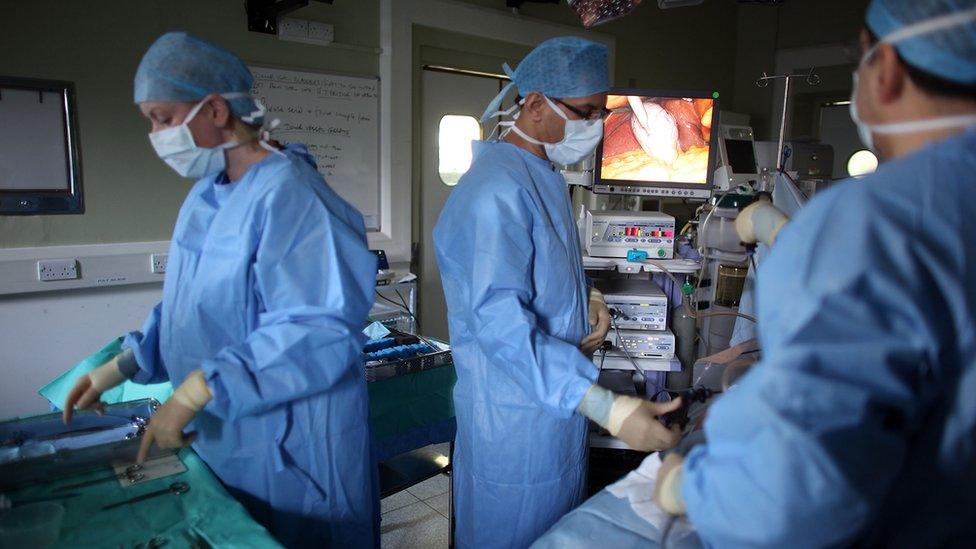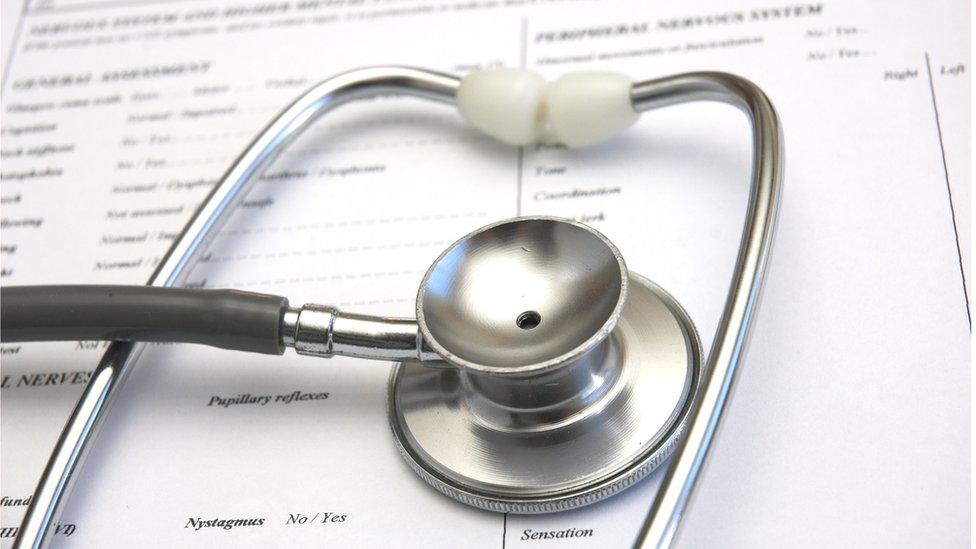Blueprint for future of NHS in Scotland published
- Published

The strategy will see people discharged from hospital as quickly as it is safe to do so after their treatment
The Scottish government has published its blueprint for the future of the NHS, external, with a focus on treating people closer to home rather than in hospital.
The plan also pledged to free up hospital beds by cutting the number of patients staying longer than they need.
And it set out commitments to recruit more GPs and nurses and regionalise some hospital services.
It follows Audit Scotland saying the NHS had met only one of its eight waiting time targets.
Healthy culture
The public spending watchdog also said the health service needed to make unprecedented savings next year, and that NHS funding was not keeping pace with increasing demand on the service.
The government's Health and Social Services delivery plan said Scotland needed a "fundamental move" away from a "fix and treat" approach.
Instead, the focus will be on preventing people becoming ill in the first place, and then intervening as quickly as possible to prevent their conditions becoming more serious.
The key to this will be attempting to create a culture in which healthy behaviours are the norm, starting from the earliest years and persisting throughout people's lives.

The NHS will focus on preventing people becoming ill, and then intervening as early as possible when they do
The document also said mental health should be given equal importance to physical health, and stressed the need to address the underlying conditions that affect health.
And it said that, when people do need hospital care, the aim should be for day surgery to be the norm, with people who need to stay longer discharged as quickly as it is safe to do so.
The delivery plan said it aimed to reduce unscheduled bed-days in hospital care by up to 10% (about 400,000 bed-days) by 2018, through reducing delayed discharges, avoidable admissions and inappropriately long stays in hospitals.
'Homely setting'
Once they are discharged, patients should get "more appropriate care in a more homely setting", with good quality community care in place to ensure people only stay in hospitals for as long as they need specific treatment, the plan said.
And it also said that some acute local hospital services should be transferred to larger regional - or even national - centres of excellence, where patients can receive the best possible treatment.
The plans said: "Ultimately, individuals and where appropriate, their families - should be at the centre of decisions that affect them. They should be given more freedom, choice, dignity and control over their care".
Among the other commitments were:
By 2021, ensure that everyone who needs palliative care will get hospice, palliative or end of life care will receive it
By 2022, there will be more GPs, every GP practice will have access to a pharmacist with advanced clinical skills and 1,000 new paramedics will be in post
Agree a refreshed role for district nurses by 2017, train an additional 500 advanced nurse practitioners by 2021 and create an additional 1,000 training places for nurses and midwives by 2021
Increase spending on primary care and GP services by £500m by the end of the current parliament so that it represents 11% of the frontline budget
Announcing the plan, Health Secretary Shona Robison said: "We want more services and more care delivered closer to home.
"And when someone does require specialist care in hospital we want it to be delivered in a centre of real expertise that is underpinned by our unswerving commitment to patient safety."
She added: "The plan I am setting out today puts actions and timescales to an already established direction of travel which we know has the broad support of healthcare professionals, charities and patient groups.
"It recognises that we must up the pace of change if we're to deliver modern, sustainable health services and that local health boards and integration partnerships have an important role to play in taking this forward over the next year and beyond."